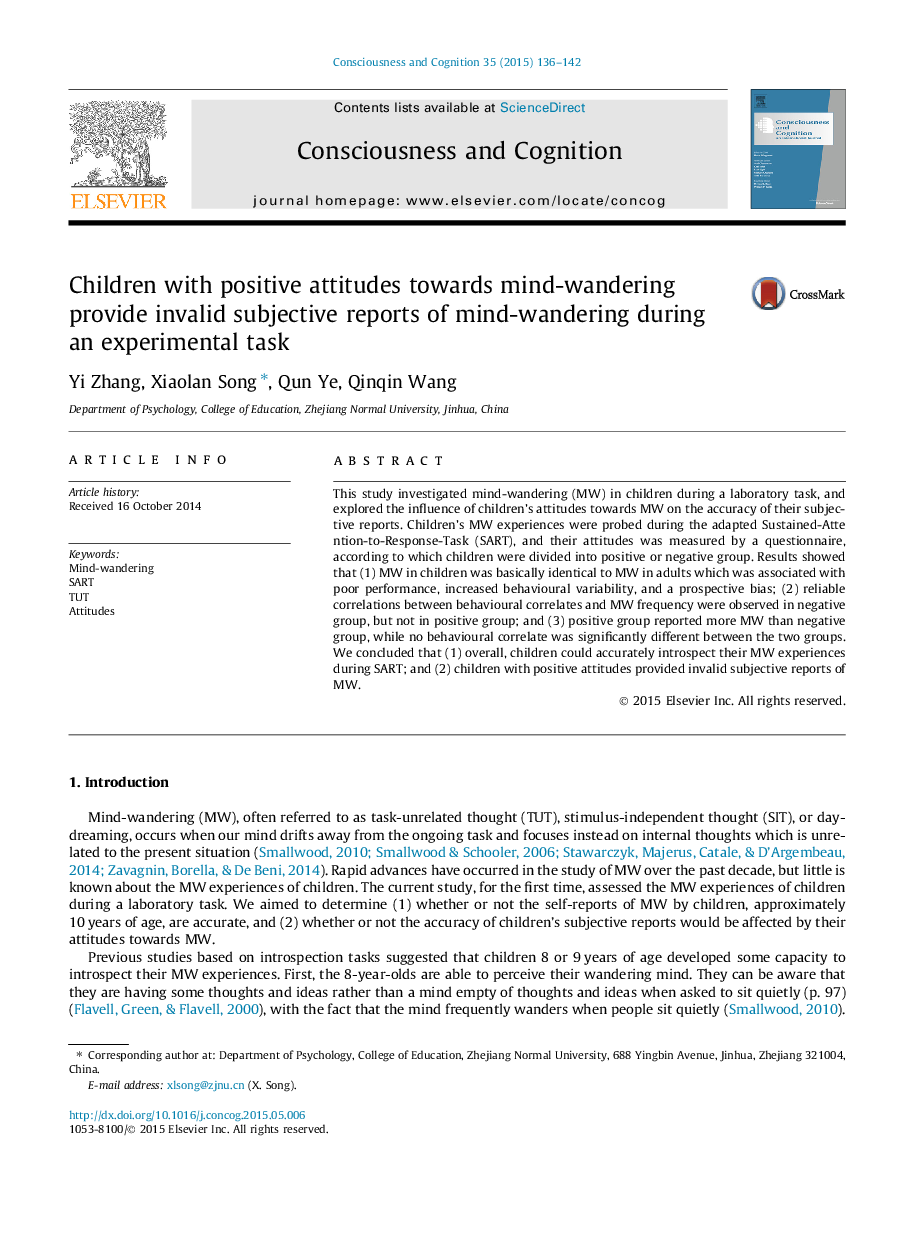| Article ID | Journal | Published Year | Pages | File Type |
|---|---|---|---|---|
| 7289292 | Consciousness and Cognition | 2015 | 7 Pages |
Abstract
This study investigated mind-wandering (MW) in children during a laboratory task, and explored the influence of children's attitudes towards MW on the accuracy of their subjective reports. Children's MW experiences were probed during the adapted Sustained-Attention-to-Response-Task (SART), and their attitudes was measured by a questionnaire, according to which children were divided into positive or negative group. Results showed that (1) MW in children was basically identical to MW in adults which was associated with poor performance, increased behavioural variability, and a prospective bias; (2) reliable correlations between behavioural correlates and MW frequency were observed in negative group, but not in positive group; and (3) positive group reported more MW than negative group, while no behavioural correlate was significantly different between the two groups. We concluded that (1) overall, children could accurately introspect their MW experiences during SART; and (2) children with positive attitudes provided invalid subjective reports of MW.
Keywords
Related Topics
Life Sciences
Neuroscience
Cognitive Neuroscience
Authors
Yi Zhang, Xiaolan Song, Qun Ye, Qinqin Wang,
